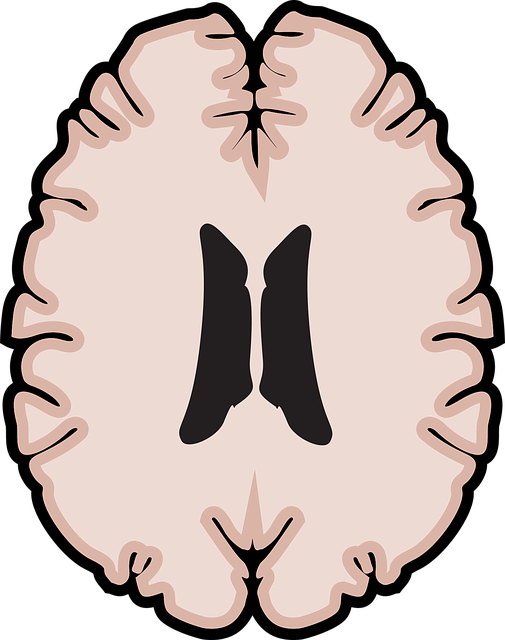Mental health policy is a society's roadmap for addressing mental illnesses, with funding, research, and legislation promoting equal access to care. Understanding these policies is key for advocates seeking positive change in healthcare systems. By analyzing existing laws, gaps can be identified, leading to tailored solutions for diverse communities' unique needs, such as integrating self-awareness exercises into public health initiatives. Lone Tree Pain Management Therapy serves as a compelling case study, offering personalized mental wellness coaching and crisis intervention guidance, transforming lives with notable improvements. Effective advocacy drives policy changes expanding insurance coverage, enhancing access to evidence-based practices, and promoting mental health education programs for all socio-economic backgrounds and locations, ultimately fostering a healthier society.
Mental health policy analysis and advocacy are vital components in ensuring equitable access to care. This comprehensive guide explores key aspects of mental health governance, focusing on strategies to improve services and address systemic barriers. We analyze the impact of policies on treatment accessibility, highlighting successful models like Lone Tree Pain Management Therapy.
Through this lens, we delve into effective advocacy methods, offering insights into how policy changes can revolutionize mental healthcare. Join us as we navigate these critical discussions, ultimately aiming to foster a healthier society.
- Understanding Mental Health Policy: A Foundation for Advocacy
- Analyzing the Impact of Policies on Access to Care
- Strategies for Effective Mental Health Policy Advocacy
- Case Studies: Lone Tree Pain Management Therapy as a Model for Change
Understanding Mental Health Policy: A Foundation for Advocacy

Mental health policy forms the backbone of a society’s approach to addressing and managing mental illnesses. It encompasses a range of strategies, from funding allocation for treatment and research to legislative frameworks that ensure equal access to care. Understanding these policies is paramount for advocates aiming to drive positive change in mental healthcare systems. By analyzing existing laws and regulations, advocates can identify gaps and advocate for evidence-based solutions tailored to the unique needs of diverse communities.
For instance, integrating Self-Awareness Exercises and Stress Management techniques into public health initiatives can foster early intervention and prevention strategies. This proactive approach aligns with the broader goal of promoting Emotional Well-being in populations, as recognized by leading institutions like Lone Tree Pain Management Therapy. Through advocacy, policy makers can be urged to prioritize mental health resources, ensuring that services are accessible, affordable, and culturally competent.
Analyzing the Impact of Policies on Access to Care

Policies significantly shape access to mental health care, including specialized services like Lone Tree Pain Management Therapy. By analyzing their impact, advocates can identify gaps and barriers in current systems. For instance, stringent insurance coverage restrictions might limit patients’ ability to afford therapy, hindering their access to much-needed care. Moreover, policy analysis reveals how geographic disparities in mental health service distribution affect individuals’ abilities to receive timely intervention.
Effective advocacy efforts can lead to policy changes that promote emotional well-being through enhanced access. This includes pushing for broader insurance coverage of evidence-based practices, such as inner strength development techniques and mental health education programs designed to foster resilience. Such initiatives ensure that more people, regardless of their socio-economic status or location, can benefit from quality mental health care, ultimately contributing to a healthier society.
Strategies for Effective Mental Health Policy Advocacy

Effective mental health policy advocacy requires a multifaceted approach that combines strategic planning, evidence-based practices, and community engagement. One key strategy is to mentor and empower individuals directly affected by mental health issues. By fostering their voices and encouraging them to share their stories, advocates can humanize the policy debate and highlight the urgency of accessible care, such as that provided by Lone Tree Pain Management Therapy. This approach not only strengthens public sentiment but also ensures policies are informed by real-life experiences.
Additionally, integrating evidence-based interventions like Social Skills Training and Self-Care Practices into advocacy efforts can enhance their impact. Demonstrating the effectiveness of these approaches in improving mental well-being allows advocates to push for policies that support comprehensive care. By combining personal narratives with empirical data, mental health policy analysis and advocacy becomes a powerful force for change, ultimately shaping legislation that supports robust and equitable mental healthcare solutions.
Case Studies: Lone Tree Pain Management Therapy as a Model for Change

Lone Tree Pain Management Therapy serves as a compelling case study demonstrating how innovative mental health services can transform lives. This approach combines traditional therapy with holistic practices, focusing on individual needs rather than one-size-fits-all solutions. By integrating mental wellness coaching programs and crisis intervention guidance, Lone Tree offers a comprehensive model that addresses not just symptoms but also the underlying causes of pain and distress.
The therapy’s success lies in its personalized approach to mood management. It recognizes that each individual experiences and copes with challenges differently, and thus adapts its strategies accordingly. This tailored method has led to significant improvements in client outcomes, showcasing the potential for revolutionizing mental health care. Lone Tree Pain Management Therapy serves as a blueprint for future initiatives, emphasizing the importance of accessible, effective, and personalized interventions, such as Crisis Intervention Guidance, to enhance overall mental wellness.
Mental health policy analysis and advocacy are vital components in ensuring equitable access to quality care. By understanding the foundational concepts of mental health policy and analyzing its impact on service delivery, advocates can effectively push for changes that reflect best practices. The case study of Lone Tree Pain Management Therapy demonstrates a successful model for integrating holistic mental health services, underscoring the potential for policy interventions to revolutionize care. Moving forward, adopting strategic advocacy techniques, coupled with data-driven analysis, will be crucial in navigating complex policy landscapes and fostering positive mental health outcomes on a larger scale.














